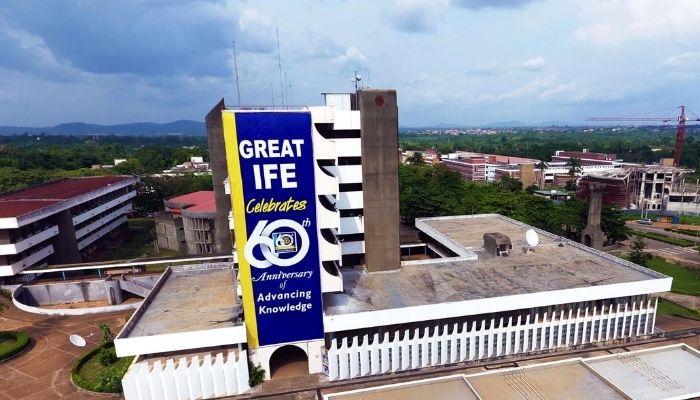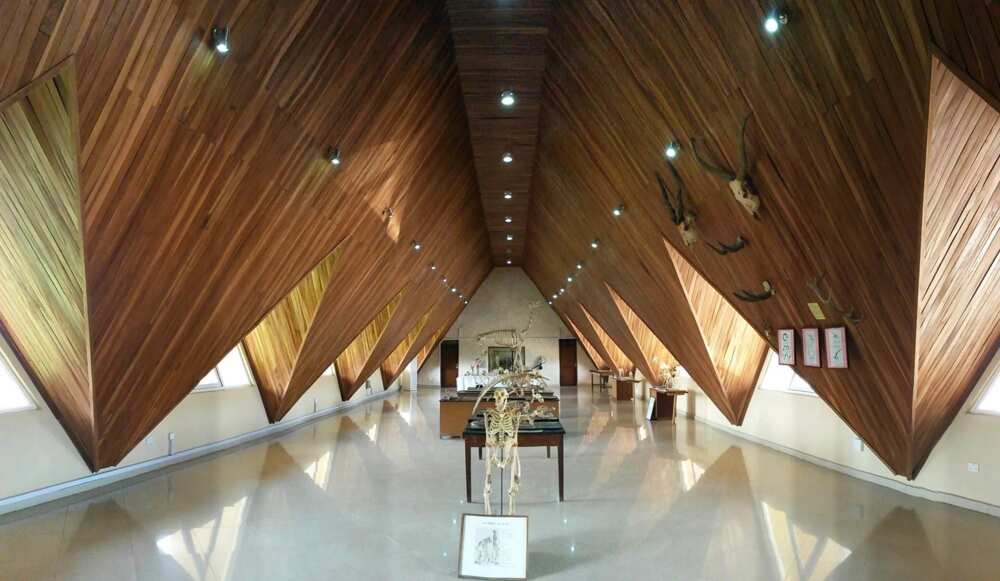University of Lagos (UNILAG) and Obafemi Awolowo University – History | Admission Process | Challenges | Cut off Marks and Tuition
Founded in 1962, the University of Lagos (UNILAG) has played a pivotal role in providing high-quality education to Nigerians and those seeking knowledge. Established with the aim of producing a skilled workforce for Nigeria’s post-independence development, the university has consistently pursued excellence and has earned the reputation of being “the University of First Choice and the Nation’s Pride.”
Origins:
The establishment of UNILAG in 1962 was a response to the need for a well-trained professional workforce in the newly independent Nigeria. The Eric Ashby Commission on Post School Certificate and Higher Education, set up by the Federal Government in 1959, recommended the creation of a new university in Lagos. The Ashby Commission proposed courses in Commerce, Business Administration, Economics, and Higher Management Studies.
In 1961, the Federal Government assigned the planning of the university to a UNESCO Advisory Commission. While the Ashby Commission envisioned a non-residential institution in the business district of Lagos, UNESCO proposed a traditional residential university with a large campus. The University of Lagos was subsequently established on October 22, 1962, based on the University of Lagos Act of 1962.
The Act outlined the structure of the university, with an eleven-member Provisional Council, a Senate overseeing academic affairs, and a separate Council for the Medical School situated at the University Teaching Hospital in Idi-Araba. Notably, the university comprised two distinct institutions—the main university and an autonomous Medical School. The connection between them involved reciprocal representation on councils and shared membership in the University Senate by Medical School professors. This dual-institution structure was unique, emphasizing the significance of both academic and medical education in UNILAG’s mission.
University of Lagos (UNILAG) Admission Requirements
Undergraduate Admission Requirements:
To be eligible for undergraduate admission into UNILAG, applicants must satisfy the following criteria:
OʼLevel Result:
- Possess a minimum of five (5) credit passes, including Mathematics and English Language, obtained in not more than two (2) sittings. Specific subject combinations may be required for certain courses.
UTME (Unified Tertiary Matriculation Examination):
- Sit for and obtain a minimum score of 200 in the UTME.
Post-UTME:
- Participate in the UNILAG Post-UTME screening exercise and achieve a satisfactory score for consideration.
Age:
- Applicants must be at least 16 years old by the 31st of October in the year of application.
Postgraduate Admission Requirements:
For postgraduate admission into UNILAG, applicants must meet the following prerequisites:
Bachelorʼs Degree:
- Possess a Bachelorʼs degree from a recognized institution with a minimum of a Second Class Lower Division.
Academic Transcript:
- Provide an official transcript of academic records from previous institution(s).
NYSC (National Youth Service Corps):
- For applicants who graduated from Nigerian universities, completion of the mandatory NYSC program or possession of an exemption certificate is required.
Entrance Examination/Interview:
- Depending on the program of study, applicants may be subjected to an entrance examination or interview as part of the admission process.
These requirements ensure that prospective students have the necessary educational background, competence, and eligibility for their chosen courses at both the undergraduate and postgraduate levels.
University of Lagos (UNILAG) School Fees
For Undergraduate Programs:
The school fees at UNILAG vary based on the program of study and the level of study. Here is a general overview of the undergraduate school fees per session:
- Faculty of Arts, Social Sciences, Education, and Environmental Sciences:
- Range: ₦55,000 to ₦66,000 per session.
- Faculty of Business Administration, Engineering, and Science:
- Range: ₦66,500 to ₦72,500 per session.
- Faculty of Law:
- Fee: ₦67,500 per session.
Please note that these fees are approximate and subject to change. Specific amounts may vary from year to year.
For Postgraduate Programs:
For postgraduate programs at UNILAG, including Master’s and Ph.D. programs, the school fees range from about ₦70,000 to ₦100,000 per session. The actual fee depends on the specific program of study and the level of study.
Prospective postgraduate students should check with the university for the most up-to-date information on school fees for their chosen programs.
It’s important to keep in mind that these fees are subject to periodic reviews and adjustments by the university. As such, students are advised to verify the current fees from the official sources to ensure accurate and updated information.
Major Challenge
Unilag major challenge for students; Undergraduates or Postgraduates face the major struggle of Accommodation, due to the location of the university and the high cost of living in Lagos, Nigeria. Accommodations surrounding the school are subject to high prices and low standards, also hostels inside the campus are of low standards with a huge number of people applying for a bed space and this has been one of the major issue with schooling in Unilag.
University of Lagos (UNILAG) List of Courses Offered
Here is a list of courses offered at the University of Lagos across various faculties:
Faculty of Arts:
- Creative Arts
- English Language
- European Languages and Integration Studies
- History and Strategic Studies
- Linguistics, African and Asian Studies
- Philosophy
- Religious Studies
Faculty of Education:
- Adult Education
- Educational Administration
- Educational Foundations
- Human Kinetics and Health Education
- Educational Psychology
- Curriculum Studies and Educational Technology
- Guidance and Counseling
- Science and Technology Education
- Arts and Social Sciences Education
Faculty of Engineering:
- Chemical Engineering
- Civil and Environmental Engineering
- Computer Engineering
- Electrical and Electronics Engineering
- Mechanical Engineering
- Metallurgical and Materials Engineering
- Petroleum and Gas Engineering
- Surveying and Geoinformatics Engineering
Faculty of Environmental Sciences:
- Architecture
- Building
- Estate Management
- Quantity Surveying
- Urban and Regional Planning
Faculty of Law:
- Law
Faculty of Management Sciences:
- Accounting
- Actuarial Science
- Business Administration
- Finance
- Industrial Relations and Personnel Management
- Insurance
- Marketing
- Public Administration
Faculty of Science:
- Biochemistry
- Botany
- Cell Biology and Genetics
- Chemistry
- Computer Science
- Geology
- Marine Science
- Mathematics
- Microbiology
- Physics
- Zoology
Faculty of Social Sciences:
- Economics
- Geography
- Mass Communication
- Political Science
- Psychology
- Sociology
- Social Work
Faculty of Pharmacy:
- Pharmacy
College of Medicine:
- Medicine and Surgery
- Dentistry
- Medical Laboratory Science
- Nursing
- Physiotherapy
- Radiography
Prospective students should verify the availability and specific requirements of these courses directly from the university’s official sources as information may be subject to change.
Introduction
The Obafemi Awolowo University (OAU) is a Nigerian university owned and operated by the federal government, situated in the historic city of Ile-Ife, Osun State. Established in 1961, with classes commencing in October 1962 as the University of Ife, it was founded by the regional government of Western Nigeria under the leadership of Samuel Ladoke Akintola. In honor of Obafemi Awolowo (1909–1987), the first premier of the Western Region of Nigeria and the brain behind the university’s conception, it was officially renamed “Obafemi Awolowo University” on May 12, 1987.
OAU, as one of Nigeria’s first-generation universities, is renowned for its commitment to academic excellence, research innovation, and societal impact. The institution provides a wide array of undergraduate and postgraduate programs across various fields, including the humanities, arts, natural sciences, social sciences, medical sciences, engineering, and technology. Organized into 13 faculties and two colleges—the Postgraduate College and the College of Health Sciences—the university oversees more than 60 departments.
When seeking admission to OAU, the careful selection of a course is crucial, as it significantly influences academic performance, career prospects, and personal satisfaction. Prospective students should consider their interests, abilities, goals, and available opportunities while also ensuring they meet the admission requirements, which can vary depending on the faculty and department.
Admission Requirements
Admission Requirements for Obafemi Awolowo University (OAU):
To qualify for admission to Obafemi Awolowo University (OAU), applicants must satisfy the following general criteria:
- O’level Qualifications:
- Obtain a minimum of five O’level credit passes in relevant subjects for the chosen course.
- Passes must be acquired in not more than two sittings.
- Required subjects include English Language, Mathematics, and others specified for the intended course.
- UTME/Direct Entry Qualifications:
- Present a valid Unified Tertiary Matriculation Examination (UTME) score or fulfill Direct Entry requirements.
- Cut-off marks vary across different programs.
- Age Limit:
- Applicants must not exceed the age of 30 for undergraduate programs and 35 for postgraduate programs at the proposed year of admission.
- NYSC Discharge Certificate (for PG Applicants):
- Postgraduate applicants should provide evidence of completing the mandatory National Youth Service Corps (NYSC).
In addition to these general requirements, candidates must adhere to specific admission criteria outlined for their desired program/faculty, available on the university’s website. JAMB brochures can also offer detailed information on subject combinations and study requirements for each course.
Application Process for OAU Admission:
- Register for the UTME or Direct Entry on the JAMB website, choosing OAU as the first choice of institution and selecting the preferred course of study.
- Visit the OAU website to register for the Post-UTME screening exercise, paying a non-refundable fee of N2,000, and uploading O’level and UTME/DE results.
- Participate in the Post-UTME screening, either online or at designated centers, covering general knowledge, aptitude, and subject knowledge.
- Check admission status on the OAU website or JAMB CAPS portal. If offered admission, accept it and print the admission letter.
- Pay the acceptance and school fees as specified by the university, undergo medical screening, and verify credentials.
- Register for courses, attend the orientation program, and participate in the matriculation ceremony.

Colleges, Faculties and Departments in OAU
Obafemi Awolowo University (OAU) is home to 13 faculties and two colleges, each offering a diverse range of courses and programs. Here’s an overview of the faculties and departments at the university:
Faculty of Arts:
- Departments: English Language, Literature in English, French, German, Portuguese, Yoruba, Linguistics, History, International Relations, Philosophy, Religious Studies, Dramatic Arts.
Faculty of Agriculture:
- Departments: Agricultural Economics, Agricultural Extension and Rural Development, Animal Science, Crop Production and Protection, Soil Science, Family, Nutrition and Consumer Sciences.
Faculty of Basic Medical Sciences:
- Departments: Anatomy and Cell Biology, Chemical Pathology, Haematology and Immunology, Medical Microbiology and Parasitology, Medical Pharmacology and Therapeutics, Medical Rehabilitation, Physiological Sciences.
Faculty of Clinical Sciences:
- Departments: Anaesthesia and Intensive Care, Community Health and Nutrition, Dermatology and Venerology, Medicine, Mental Health, Morbid Anatomy and Forensic Medicine, Nursing, Obstetrics, Gynaecology and Perimatology, Ophthalmology and Surgery, Orthopaedic Surgery and Traumatology, Paediatrics and Child Health, Radiology.
Faculty of Dentistry:
- Department: Dentistry and Dental Surgery.
Faculty of Education:
- Departments: Adult Education, Continuing Education, Educational Administration and Planning, Educational Foundation and Counseling, Educational Technology, Physical and Health Education, Teacher Education Science, Special Education and Curriculum Studies.
Faculty of Environmental Design and Management:
- Departments: Architecture, Building, Estate Management, Fine and Applied Arts, Quantity Surveying, Urban and Regional Planning.
Faculty of Law:
- Department: Law.
Faculty of Pharmacy:
- Departments: Pharmacy, Pharmaceutical Chemistry, Pharmacognosy, Pharmacology, Pharmaceutics.
Faculty of Science:
- Departments: Applied Geophysics, Biochemistry, Botany, Chemistry, Computer Science with Economics, Computer Science with Mathematics, Engineering Physics, Geology, Industrial Chemistry, Mathematics, Microbiology, Physics, Statistics, Zoology.
Faculty of Social Sciences:
- Departments: Demography and Social Statistics, Economics, Geography, International Relations, Local Government Studies, Political Science, Psychology, Public Administration, Sociology and Anthropology.
Faculty of Technology:
- Departments: Aerospace Engineering, Agricultural Engineering, Chemical Engineering, Civil Engineering, Computer Engineering, Electrical and Electronics Engineering, Food Science and Technology, Material Science and Engineering, Mechanical Engineering.
Postgraduate College:
- Offers postgraduate programs at diploma, masters, and doctoral levels across various fields. Administered by respective faculties and departments in collaboration with the college.
College of Health Sciences:
- Comprises the faculties of Basic Medical Sciences, Clinical Sciences, and Dentistry, offering undergraduate and postgraduate programs in various health sciences disciplines.

Cut-Off Marks and Cost of Courses
Here is a summary of the fees and cut-off marks for various faculties and colleges at Obafemi Awolowo University (OAU) based on the information available as of the time of writing:
| Faculty/College | Cut-Off Mark | Tuition Fee | Acceptance Fee | Accommodation Fee | Miscellaneous Fee |
|---|---|---|---|---|---|
| Arts, Law, and Humanities | 200 | N89,200 | N20,000 | N5,000 – N10,000 | N12,000 |
| Technology and Science | 200 | N101,200 | N20,000 | N5,000 – N10,000 | N12,000 |
| Health Sciences and Pharmacy | 200 | N128,200 | N20,000 | N5,000 – N10,000 | N12,000 |
Note:
- The cut-off mark is the minimum score required in the Unified Tertiary Matriculation Examination (UTME) for admission into OAU.
- The tuition fee is the amount payable per session for the respective course of study.
- The acceptance fee is the amount payable by newly admitted students to confirm their acceptance of the admission offer.
- The accommodation fee is the amount payable for hostel accommodation within the campus.
- The miscellaneous fee covers other charges such as identity card, medical, sports, examination, etc.
Please note that these fees are subject to change, and it is advisable to check the official website of the university for the latest updates. .
Conclusion
In this comprehensive guide, we have presented a detailed overview of the courses offered at Obafemi Awolowo University (OAU) along with the admission requirements. Additionally, we have provided valuable tips on selecting the appropriate course aligned with your academic and career objectives. We hope this article proves helpful and informative for your academic journey. Should you have any inquiries or comments, please do not hesitate to reach out to us. Best wishes for success in your educational pursuits and future endeavors. Thank you for reading!

